The brother of late Russian dissident Alexei Navalny reportedly faces unspecified new criminal charges as tensions rise over the circumstances of Alexei’s shocking death last week.
Oleg Navalny, currently in self-exile, has been added to Russia’s “wanted list” by the Interior Ministry, according to a Russian state-controlled media outlet. TAS.
It was not immediately clear on what legal basis the case had been opened against the 40-year-old, TASS announced that charges had been brought “without giving any details”.
Oleg was already on the ministry’s wanted list in connection with another case, allegedly violating Russia’s Covid-19 lockdown restrictions by encouraging people to join his brother’s anti-government protests.
But the decision to arrest him now comes at a delicate time following protests across Europe over the sudden death of anti-corruption activist and opposition leader Alexei Navalny in a brutal Arctic penal colony on February 16.
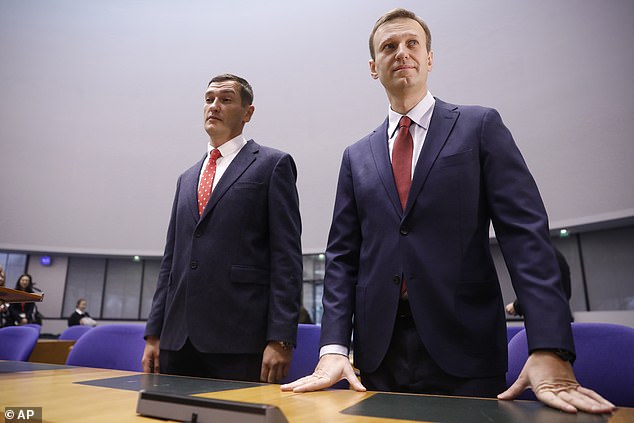
Russian opposition leader Alexei Navalny (R) with his brother Oleg (L) during a hearing at the European Court of Human Rights in Strasbourg on November 15, 2018.
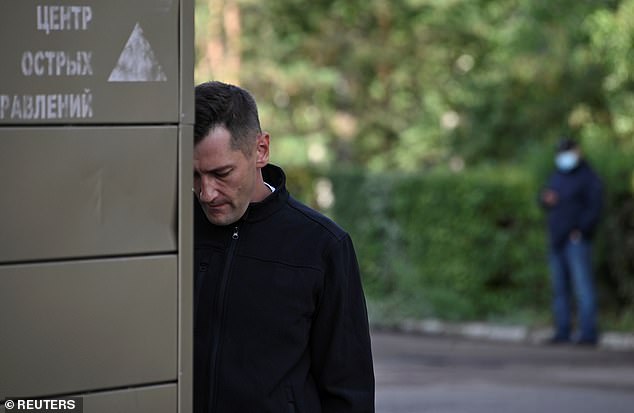

Oleg Navalny, brother of Russian opposition leader Alexei Navalny, is seen outside a hospital, where Alexei receives medical treatment in Omsk, Russia, August 21, 2020.
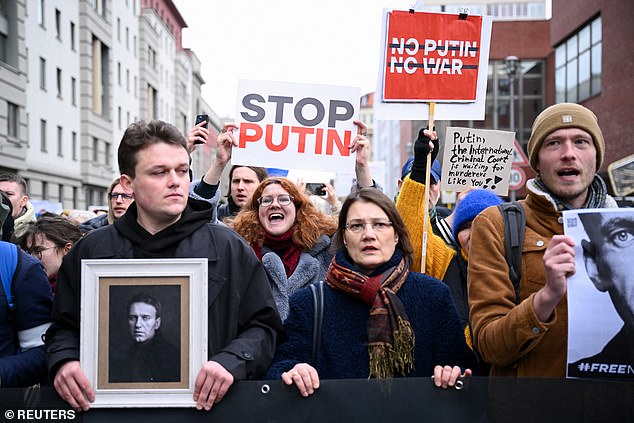

People hold banners as they attend a protest following the death of Russian opposition leader Alexei Navalny, in Berlin, Germany, February 18, 2024.
The sudden death of Alexei Navalny in the IK-3 penal colony in Kharp last week left many questions unanswered, sparked protests across Europe and led his followers to reaffirm their commitment to continuing their anti-corruption activism.
Navalny was reported to have died on Friday after suddenly collapsing after a walk. On Saturday, her mother and her team traveled to the camp, where they were told investigators were still trying to determine the cause of death.
Lyudmila Navalnaya asked to see her son’s body, but was told it was in the nearby Salekhard morgue. They were later informed that he had been moved, raising suspicions that Russia had hidden Navalny’s body to wait for traces of a nerve agent to disappear.
Russian investigators claimed on Saturday that Navalny had died from sudden adult death syndrome, but later said they would not hand over Navalny’s body for 14 days while a “chemical examination” is carried out.
Navalny was previously suspected of being poisoned with a Novichok nerve agent in 2020 after suddenly falling ill while returning from a corruption investigation in Siberia.
For years he had worked with his brother Oleg to expose corruption in the Russian state and advocate for democratic reforms, fighting against repeated attempts to close their organizations and bring charges against them suspected of being politically motivated.
In January 2021, Oleg received a one-year suspended sentence for his alleged incitement to protest during the Covid pandemic.
Unsanctioned protests are also illegal in Russia, prompting swift and harsh responses from Russian police.
Oleg was banned from leaving his house at night, attending mass events and leaving Moscow as part of his sentence, before a correctional inspectorate submitted a request for his imprisonment.
Before the decision was made in February 2022, Oleg had already fled Russia, according to Radio Free Europe.
The request was later repealed, but still sparked outrage among supporters of the Navalny brothers, considering it a targeted political attack.
A month later, Alexei Navalny, already languishing in prison, was sentenced to nine years in prison in a “strict regime penal colony” after being found guilty of fraud and contempt of court.
Prosecutors accused him of stealing $4.7m (£3.5m) in donations given to underground organisations, including his anti-corruption foundation.
The ruling was to replace his current sentence, meaning he would have to spend another seven years in a remote maximum security prison, facing even harsher conditions than those he faced in Moscow after being jailed for allegedly violating parole conditions. after being sent to Germany to be treated for Novichok poisoning.
The nerve agent poisoning in 2020 implicated Russian officials in the eyes of Western leaders as Alexei returned from investigating corruption in Siberia.
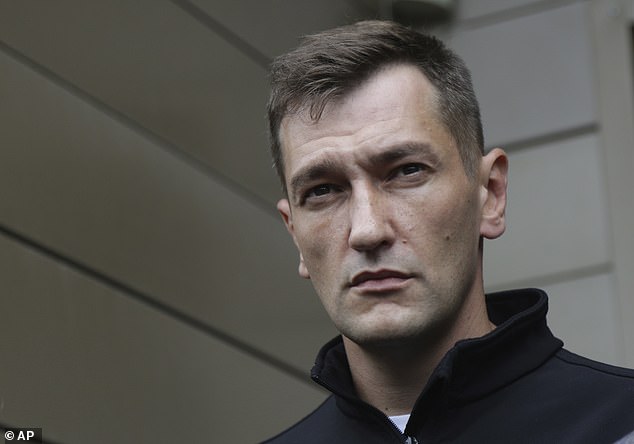

Oleg Navalny at Omsk Ambulance Hospital No. 1, intensive care unit where Alexei Navalny was hospitalized in Omsk, Russia, in 2020 after suffering poisoning from the nerve agent Novichok.
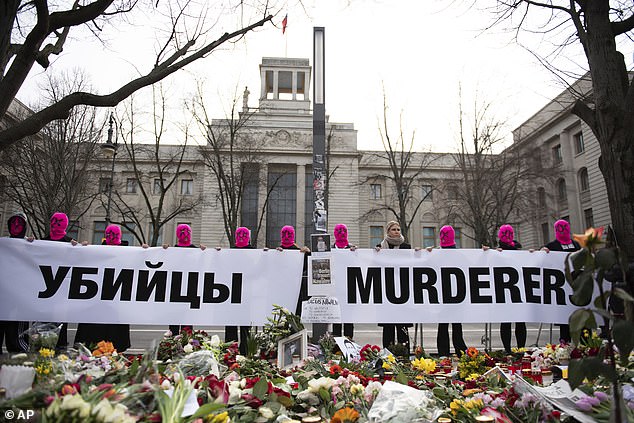

Members of the Russian activist group Pussy Riot hold a sign outside the Russian embassy in Berlin on February 18, 2024, following the shocking death of opposition leader Navalny.
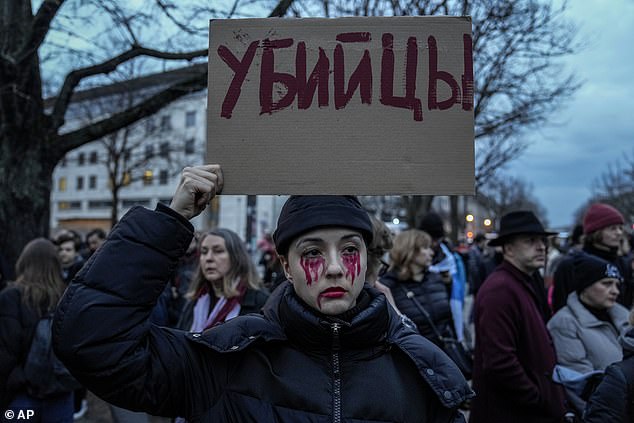

A woman holds a sign with her face painted the color of blood during a protest in front of the Russian embassy in Berlin, Germany, Friday, February 16, 2024.
He and his brother had already been targeted in 2014, both convicted of stealing around $500,000 from two Russian companies, one linked to the French cosmetics company Yves Rocher, and the other for allegedly laundering some of the money.
Both denied the charges and claimed the case was politically motivated.
Alexei eventually received a suspended sentence, while Oleg was not released until the end of June 2018, after serving his full sentence.

